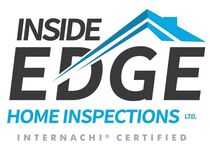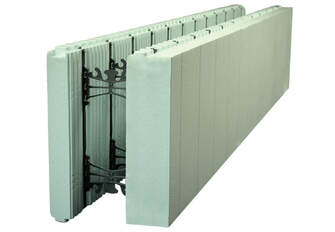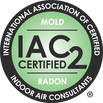Mike's Home Inspector BlogMichael Burfitt |
 Guest Blog Post by Jeff Weickert Trees are a part of nature and in most cases, part of the landscape around homes. Although there are many positive reasons to have trees in your yard, they unfortunately can have negative effects on the building. Here are a few examples of what to watch out for when buying or building a home. Foundation Damage Tree roots are always growing, expanding in the search for nutrients and moisture. Some trees put out a root system three times the height of the tree. When the roots hit a solid barrier such as a foundation, they begin to grow laterally against the solid object. Although the fine roots may find their way into small cracks, the real damage is caused if you have loose soil against your foundation. Tree roots will expand and contract during times of moisture and drought which compromises the integrity of the soil which can cause foundation settling especially in older homes. When concrete settles it is more likely to shift and crack. If you have mature trees you may want to consult a professional to determine if any are of a species that has aggressive root growth such as silver maple, willow or elm. Rather than remove a tree, a root barrier can be installed to alleviate concerns of root interference. Septic System Damage Tree roots are a common cause of septic system damage such as line clogs and backups. In order to gauge the potential for root interference in the septic field, you will have to know where all parts of the system are as well as identify any trees or bushes in the area that could be causing damage. Tree roots are designed to seek out water and leaky pipes are vulnerable to root penetration. The depth of the septic system is also a factor, the deeper the system is buried the less likely you have to worry. Once again, a root barrier can be installed to prevent damage. Roof Damage Leaves and branches pose their own threat to the building from the above ground portion of the tree. Low hanging branches can strip shingles in bad weather leaving your roofing exposed to further damage as well as potential leakage. Heavy branches can break off in a storm and do damage to gutters or the roof itself. Shade provides the ideal condition for moss growth. Moss causes shingles to loosen and break, again compromising the roofs waterproof status. Leaves will accumulate in gutters which eventually overflow. Water flowing down the building’s surfaces will cause damage to wood surfaces (i.e. fascia board) and can potentially find access into the exterior walls. Large, old trees can be a direct hazard to the roof by means of large limb drop and a complete fall of an unhealthy tree which can do enormous damage to a home. The best way to avoid these and other issues is to have your home and grounds inspected by professionals who know exactly what to look for. It will save you time and money in the long run. While preparing for a potential power outage recently due to freezing rain, I couldn’t help but notice this radio as inspiration for writing my next blog post. You would likely think I am going to talk about emergency preparedness, but I am looking at the model number, particularly the first three letters, which as you can see are ICF. In the world of home construction, ICF is an initialism for Insulated Concrete Forms. While it has only become common in the past 15 years it actually dates back to its invention right here in Canada in 1966. An ICF is composed of two main components: insulation, almost always in the form of expanded polystyrene (EPS) and concrete with steel reinforcement (rebar). They can be used in both foundations and walls, although the latter is less common. The insulated blocks are used to hold the concrete while it cures (just like the removable plywood used in regular concrete construction) and are permanently left in place to provide valuable wall insulation. I recently did an inspection where my client wanted to know what an ICF was and how far it went up the walls. While I typically see them just used as the home’s foundation, this particular home inspection showed that the entire wall structure right up to the rafters was constructed of ICF. So, is that a good thing? The cliché answer is that it depends. My professional answer is an absolute yes, but it definitely has drawbacks.
First, the Bad News There are a number of disadvantages to ICF construction. Some of these include:
Advantages of ICF There are many benefits to an ICF home. While I only report and never make advice on buying decisions, I definitely get excited when I see ICF construction. Some upsides include:
Overall, I draw parallels to my post on heat pumps. While there is a significant initial upfront cost, the savings in both money and energy over the long run make it all the more worthwhile. Unfortunately, the higher price tag can scare many developers and new homeowners off but to this home inspector, it is an investment well worth the initial expense. Many home inspector websites have a Q&A or frequently asked questions (FAQ) section, where they answer commonly asked questions about the home inspection process. Most of them involve simple questions such as what exactly a home inspection is, can I attend an inspection (YES!), how long does an inspection last (varies but 2 hours on site is a good rule of thumb) and do inspectors offer buying advice or recommendations (no). This blog is going to answer some questions that are rarely asked. Let’s take a look at a few:
Why Don’t You Do Short Term Radon Tests? Another way to phrase this is why don’t I take advantage of the ‘easy money’ in short term (48 hour) radon testing, especially when I have the necessary training and ability to perform and interpret radon tests. The obvious answer is that, unlike in the USA, they are not considered valid in Canada. Short term tests are highly inaccurate (a recent study from the University of Calgary found about 96-99% inaccuracy) and require very specific closed condition parameters. For starters, all windows have to be kept closed both before and during the test and exterior doors opened only to enter/leave. In a hot summer day without air conditioning, this is a feature that can cause significant discomfort to put it mildly! I once heard someone compare making a radon mitigation decision based on a short-term test is like getting married based on a first date and this isn’t far from the truth. Yes, a short term test is better than no test but a false negative can provide an unwarranted sense of security and a false positive will usually require a long-term test to confirm anyway. As much as I would love to be able to provide accurate information over a weekend, this is simply not possible due to the highly fluctuating nature of uranium decay deep underground and the constant changing of building conditions. It is recommended that radon tests should be completed with a 3-12 month timeframe (bare minimum of 30 days) and is the guideline that I operate under. What Does “Independent Home Inspector” Mean? This question can be expanded to include “are you hostile towards real estate agents?”. The answer to that is an absolute and clear NO! There are a large number of agents in both Halifax and Nova Scotia as whole that work very hard to ensure their client’s best interests are met just like I do. We both have a fiduciary responsibility to look out for our clients regardless of our personal opinions and we are both passionate about homes. In many cases we have mutual clients and work closely together with agents. All “independent” means is that we do not work under the direction of a real estate agent, real estate broker, contractor, or other similar organization and my loyalty is above all else to provide the unbiased truth rather than being influenced into writing a “soft” or "tough" report. Put another way, a "pre-sale" report, a "pre-purchase" report, and a "post-purchase/maintenance" report on the exact same house for the same individual client would have the exact same results with the exact same recommendations which is why I removed this section from my website. What’s the Most Interesting Personal Items or Décor You Have Seen in a Home? Nothing and even if I did stumble upon something interesting, I would not discuss it with anyone. I have stated before that the #1 thing I dislike about being a home inspector is the feeling of being intrusive in someone’s personal space. While I am skilled at looking past home contents, if there was a way to magically make every single piece of personal property temporarily disappear during an inspection, I would be a very happy inspector. A clean house also makes our job much easier, but I digress. There was once a story in the local media about a property inspector who discovered and brought down some long-lost personal property out of an attic. While it was presented as a feel-good story I was infuriated when I read the article. Unless there is a VERY good reason, we do not touch, interact with, or disturb personal property and the person in question admitted they were snooping around. If there is a concern, I will always ask the property owner for further guidance before proceeding. Being a home inspector is about trust, which I have spent many years building with both clients and the public at large. Anyone who uses our services has trust in us: that we will look out for their interests, that we will provide maximum value, that we will show up on time and finish the report as promised and most importantly that we do our best to leave only (hopefully invisible) footprints and take only photographs of the home and its various systems. Like many homeowners, I have watched plenty of home related TV shows over the years. I have also mentioned previously that I have an overall positive opinion of Mike Holmes although I can certainly think of plenty of valid criticisms regarding his various shows, mostly revolving around how he blurs the line between construction and inspection. So, it goes without saying that I was excited to hear about a show focusing on home inspections starring an actual home inspector. How awesome to see our relatively unknown industry getting its own show and getting to showcase what a home inspector does and why it's important to get a home inspected! Now that I have had a chance to see a few episodes I think I have seen enough to form a fair opinion.
The show features Joe Mazza, a home inspector from New York state who definitely has a personality fit for TV even though he is a rookie to that medium. What do I think of his show? In my opinion it is a significant misrepresentation of our industry to put it mildly. Of course, actual inspection jobs would not translate well to TV, as they can take an average of over 2 hours just on site alone and can require plenty of detailed explanations of technical issues in layman's terms. My criticisms are many and mainly revolve around how Joe, who to my knowledge is an actual licensed inspector in both New York and Connecticut, does very little actual inspecting (it’s more of a show about house hunting and renovations) and much of what he states is misleading at best and flat out wrong at worst. Let me count some of the numerous issues I see just from a few episodes: Much of the Show is Outside the Scope of a Home Inspection Joe is seen to be touring the homes with Noel Gatts, an interior designer. Simply put, we home inspectors do not generally inspect or comment on cosmetic finishes and while it is no doubt a valuable profession, we do not “team up” with interior designers on our inspections to recommend cosmetic work. We Do NOT Tear Out Walls or Do Renovation Work I’m not sure what the standards in New York or Connecticut are, but all major home inspection organizations make it very clear that it is a serious ethical violation to perform repairs or renovations to any home within 1 year of performing an inspection. This show also makes the connection that home inspectors are just contractors that do inspections on the side or are just inspecting to look for ways to make money renovating. While a person can certainly do both jobs successfully, in my experience they require VERY different skillsets. We also are not invasive in our inspections, and as fun as being destructive can be I definitely do not bring a sledgehammer with me! We Don't Make Definitive Statements in Most Circumstances This show has many scenes where Joe says something like “that’s asbestos!” or “that’s black mold!”. While there are signs that something is very likely asbestos or mold, only a lab test can confirm it! I also got upset when while tearing out a wall, one of the workers quickly and confidently states, “this wall isn’t load bearing!”. While I agree it likely isn’t, in most areas (including here in Nova Scotia) only a qualified engineer or architect can make that statement and it can cause serious, if not catastrophic damage to remove a load bearing wall. The Show Has Very Little to Do with Home Inspections Overall, the show only dedicates a tiny fraction to actual home inspection work. It is unfortunate that a show that could have highlighted our industry and the incredible work I and my fellow inspectors do is just another dime-a-dozen renovation show with “Home Inspector” slapped on the title. It does a disservice to both our industry and our clients by providing very misleading information of what a home inspector does. I love to watch home inspectors in action, but this show is not an example of what we do. |
Archives
July 2024
Categories
All
|
|
Inside Edge Home Inspections Ltd.
Halifax, NS 902-209-9921 [email protected] Proudly Serving the HRM & Central Nova Scotia |



 RSS Feed
RSS Feed

